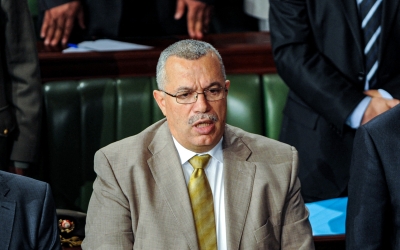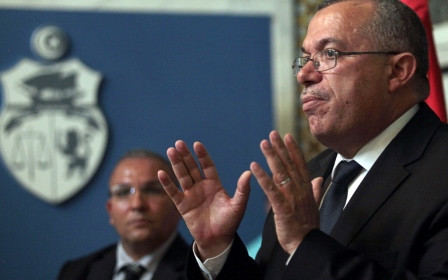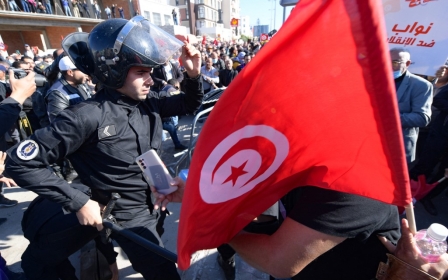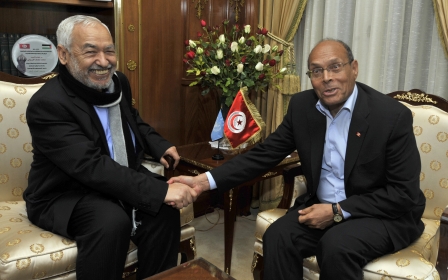Tunisia: Hunger-striking Ennahda deputy head 'stable', says doctor
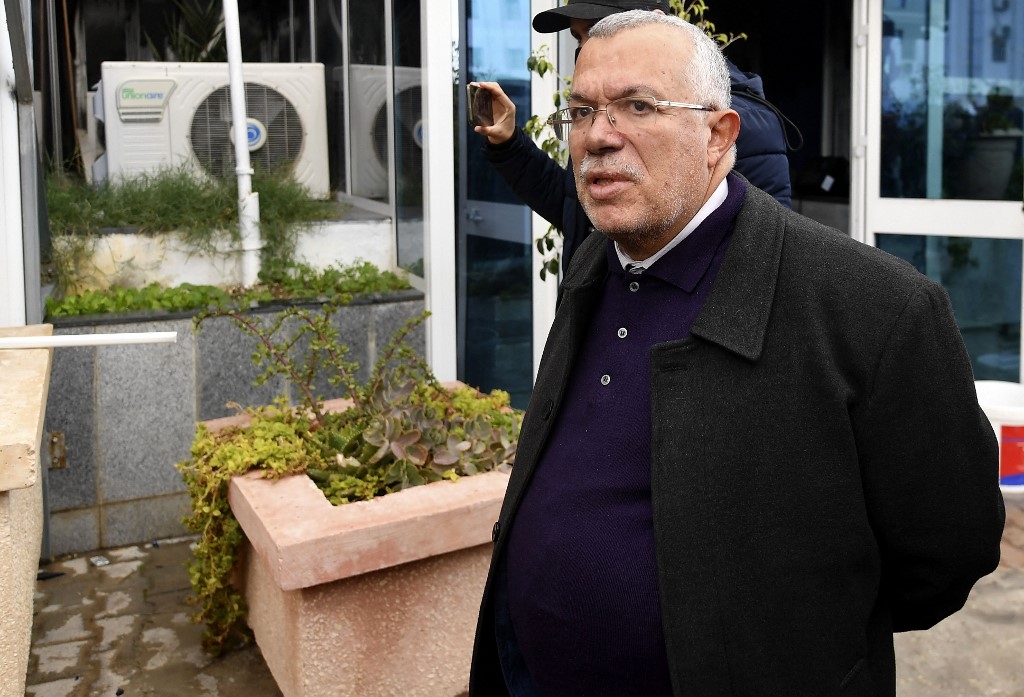
A Tunisian ex-justice minister who launched a hunger strike after his arrest a week ago is "stable" in hospital, a doctor said Friday, as Human Rights Watch demanded his release.
Noureddine Bhiri, 63, of the Islamist-inspired Ennahdha party, was arrested by plainclothes police officers last Friday and later accused of possible "terrorism" offences.
He suffers from several pre-existing health conditions, including diabetes and hypertension, and has been hospitalised since Sunday.
"He is in a stable condition", Habib Bougatfa, head of the intensive care unit at the Bizerte hospital north of the capital Tunis, told AFP.
Bhiri is on a hunger strike but has "agreed" to undergo treatment for his hypertension, he added.
Ennahdha played a central role in Tunisian politics until a power grab - which critics labelled a coup - by President Kais Saied in July last year.
Saied seized power, in a plot leaked to Middle East Eye, citing skyrocketing unemployment, rampant corruption and the coronavirus pandemic as reasons to suspend parliament, sack the prime minister and grant himself prosecutorial powers.
'Abduction-style detention'
Bhiri was taken in for questioning on 31 December, along with former interior ministry official Fathi Baldi.
Their whereabout were kept secret and neither men has been charged, sparking condemnation in Tunisia and abroad.
'Authorities should free Bhiri and Baldi now or ... charge them under the law. It's that simple'
-Eric Goldstein, Human Rights Watch
On Thursday, Human Rights Watch said the men should be charged or set free.
"The abduction-style detention of Noureddine Bhiri and Fathi Baldi demonstrates the growing threat to human rights protections since President Saied's power grab last July," said HRW's Eric Goldstein.
"The authorities should free Bhiri and Baldi now or, if they have evidence of an actual crime, charge them under the law. It's that simple," Goldstein added.
Tunisia was the only democracy to emerge from the so-called 2011 "Arab Spring" revolts, that ousted veteran autocratic leader Zine El Abidine Ben Ali.
But civil society groups and Saied's opponents, including Ennahdha, have expressed fear of a slide back to authoritarianism.
Middle East Eye propose une couverture et une analyse indépendantes et incomparables du Moyen-Orient, de l’Afrique du Nord et d’autres régions du monde. Pour en savoir plus sur la reprise de ce contenu et les frais qui s’appliquent, veuillez remplir ce formulaire [en anglais]. Pour en savoir plus sur MEE, cliquez ici [en anglais].


